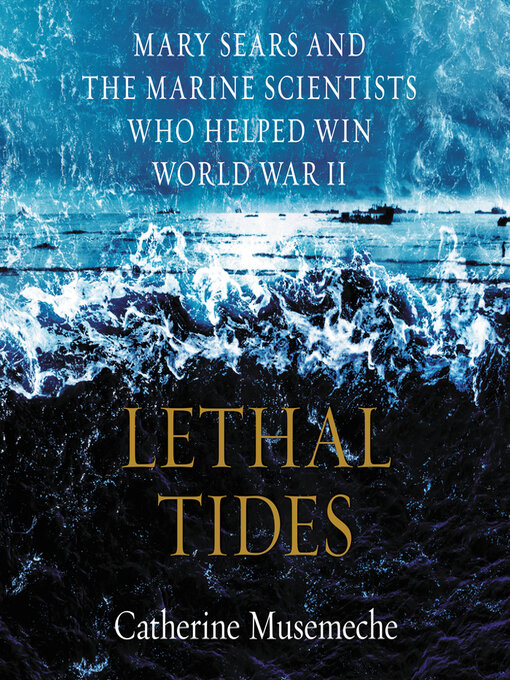""Magnificently researched, brilliantly written, Lethal Tides is immensely entertaining and reads like an action novel. Catherine Musemeche has brought to life the incredible work of the scientists and researchers who made such a remarkable contribution to America's war effort in the Pacific theater during WWII." —Admiral William H. McRaven (U.S. Navy, Ret.), #1 New York Times bestselling author of Make Your Bed and The Hero Code
Lethal Tides tells the story of the virtually unknown Mary Sears, "the first oceanographer of the Navy," whose groundbreaking oceanographic research led the U.S. to victory in the Pacific theater during World War II.
In Lethal Tides, Catherine Musemeche weaves together science, biography, and military history in the compelling story of an unsung woman who had a dramatic effect on the U.S. Navy's success against Japan in WWII, creating an intelligence-gathering juggernaut based on the new science of oceanography.
When World War II began, the U.S. Navy was unprepared to enact its island-hopping strategy to reach Japan. Anticipating tides, planning for coral reefs, and preparing for enemy fire was new ground for them, and with lives at stake it was ground that had to be covered quickly. Mary Sears, a marine biologist, was the untapped talent they turned to, and she along with a team of quirky marine scientists were instrumental in turning the tide of the war in the United States' favor.
The Sears team analyzed ocean currents, made wave and tide predictions, identified zones of bioluminescence, mapped deep-water levels where submarines could hide and gathered information about the topography and surf conditions surrounding the Pacific islands and Japan. Sears was frequently called upon to make middle-of-the-night calculations for last-minute top-secret landing destinations and boldly predicted optimal landing times and locations for amphibious invasions.
In supplying these crucial details, Sears and her team played a major role in averting catastrophes that plagued earlier amphibious landings, like the disastrous Tarawa, and cleared a path to Okinawa, the last major battle of World War II.
Supplemental enhancement PDF accompanies the audiobook.

